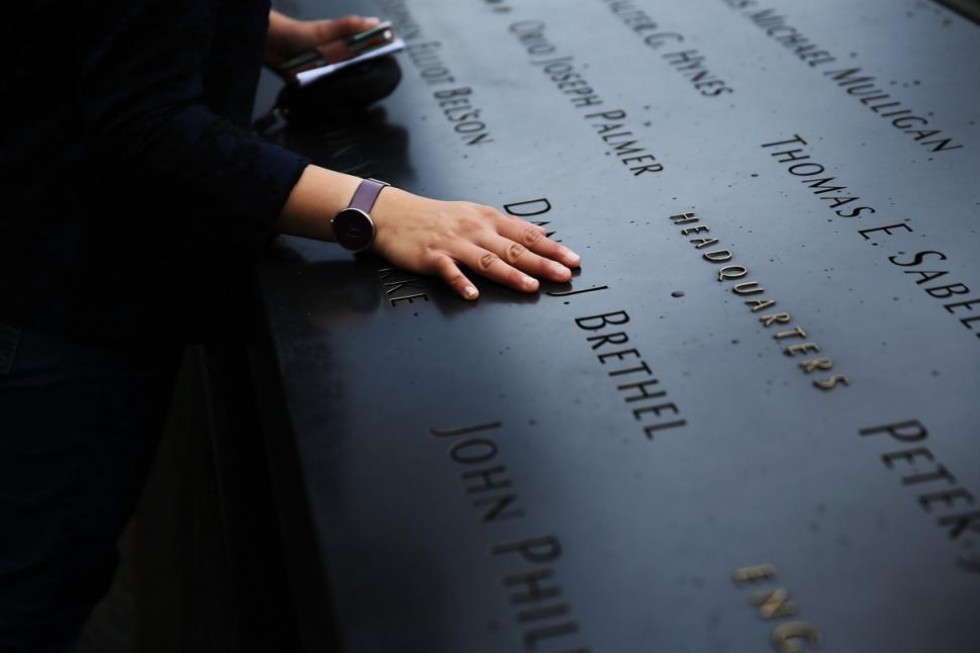When 9/11 responder John Feal visited the National September 11 Memorial Museum in New York City last week ahead of its public opening, which is this Wednesday, he never expected to see a gift shop packed with overpriced items such as stuffed animals, jewelry, and $95 silk scarves.
“The gift shop was uncalled for. I walked up to it and thought, ‘You have to be kidding me,’ ” he said. “Those who lost loved ones and were there don’t need a key chain.”
Feal has joined other responders and 9/11 victim family members to express displeasure with the final result of the museum erected at Manhattan’s ground zero to pay homage to the nearly 3,000 people who died in the 2001 attacks on the World Trade Center and the Pentagon.
For survivors, the site is as personal as it is painful, filled with 580 hours of film and video footage, 1,995 oral histories, and more than 12,500 objects, including charred personal letters and a singed wallet. Seeing those artifacts of the deadliest terror attack on American soil in our history, survivors are upset the museum is exacting a toll on those who wish to pay their respects. They’ve voiced complaints over the hefty $24 adult admission fee, its pricey gift shop, and nearly 8,000 pieces of the remains of unidentified victims being moved to a basement repository without full consent of families.
“The families of the people I represent believe that the remains should not be in the museum 70 feet belowground, but in an above ground tomb at the 9/11 Memorial plaza, like the Tomb of the Unknowns at Arlington National Cemetery,” said attorney Norman Siegel, who represents almost two dozen 9/11 families. “The remains should be in a place of reverence, not a commercial venue.”
The museum’s interest in striking a balance between commercialism and commemoration is a continued source of friction for 9/11 families and survivors.
Museum officials have said that while the 9/11 Memorial Plaza is free and the museum is always free to 9/11 family members, revenue is necessary to offset costs. The nonprofit museum, which also relies on private donations and fund-raising, has a $63 million annual budget and has received no other federal funding beyond an initial $250 million.
Comparatively, the federally and privately funded United States Holocaust Memorial Museum in Washington, D.C., is free to all visitors.
Feal, whose left foot was partially amputated after being crushed by 8,000 pounds of falling steel at the Twin Towers site in the days following 9/11, said visiting the museum created mixed emotions, especially during the weeklong dedication period running up to the public opening.
The founder of the nonpartisan FealGood Foundation, which helps sick and financially destitute 9/11 responders, Feal said that while he understood the need to raise money to maintain the museum and support staff salaries, he knew many responders on disability who would be unable to afford the $24 entrance fee. Also, while he considered the museum an elegant, beautifully cavernous space—with its huge waterfalls—it was too clean to really convey the sheer destruction, he said, and didn’t include enough post-9/11 stories about survival and recovery.
Still, listening to audio of emergency calls and people tearfully phoning family and friends before their deaths had an immediate impact.
“If you have any ounce of compassion in your body, it was brought to the surface,” said Feal. “The 9/11 responders I went with are very serious people, but we also rib each other. We’ve used humor to mask our pain over the past 13 years. When we were there, we weren’t laughing. When we left, we walked a little slower. I didn’t cry, but there was water in my eyes. I’m reminded of 9/11 every day, like Bill Murray in Groundhog Day. I came out of there appreciating what I have.”
While President Obama praised the museum last Thursday as “a sacred place of healing,” that sentiment doesn’t ring true for Sally Regenhard. Her firefighter son Christian Regenhard died during the World Trade Center attacks, along with his entire engine company. His body remains missing, and Regenhard, represented by attorney Siegel, has been vocal alongside other families about not visiting the museum and vehemently opposing any remains being housed deep underground.

